afterLoad (456.3KB) (2.97ms)
afterInitialise (1.27MB) (69.87ms)
afterRoute (827.66KB) (20.71ms)
beforeRenderComponent com_content (35.2KB) (3.87ms)
Before Access::preloadComponents (all components) (67.27KB) (638μs)
After Access::preloadComponents (all components) (98.07KB) (6.74ms)
Before Access::preloadPermissions (com_content) (1.6KB) (20μs)
After Access::preloadPermissions (com_content) (3.29MB) (40.97ms)
Before Access::getAssetRules (id:62 name:com_content.category.20) (130.65KB) (176μs)
After Access::getAssetRules (id:62 name:com_content.category.20) (7.38KB) (66μs)
Before Access::getAssetRules (id:8 name:com_content) (51.77KB) (72.46ms)
After Access::getAssetRules (id:8 name:com_content) (6.17KB) (44μs)
afterRenderComponent com_content (1.59MB) (267ms)
afterDispatch (32.39KB) (16.89ms)
beforeRenderRawModule mod_articles_category (READ MORE...) (398.66KB) (27.56ms)
afterRenderRawModule mod_articles_category (READ MORE...) (66.83KB) (339ms)
beforeRenderRawModule mod_custom (BOOST YOUR IMMUNE DEFENSE) (6.45KB) (32μs)
afterRenderRawModule mod_custom (BOOST YOUR IMMUNE DEFENSE) (4.42KB) (4.26ms)
beforeRenderRawModule mod_articles_latest (Latest news) (976B) (20μs)
afterRenderRawModule mod_articles_latest (Latest news) (28.63KB) (132ms)
beforeRenderRawModule mod_tags_popular (Search) (2.09KB) (23μs)
afterRenderRawModule mod_tags_popular (Search) (28.09KB) (181ms)
beforeRenderRawModule mod_custom (the Vitamin and Mineral Guide) (960B) (37μs)
afterRenderRawModule mod_custom (the Vitamin and Mineral Guide) (1.02KB) (63μs)
beforeRenderRawModule mod_custom (Weight loss that works) (736B) (12μs)
afterRenderRawModule mod_custom (Weight loss that works) (928B) (24μs)
beforeRenderRawModule mod_custom (Get additionel and more detailed knowledge ) (752B) (10μs)
afterRenderRawModule mod_custom (Get additionel and more detailed knowledge ) (944B) (20μs)
beforeRenderRawModule mod_custom (Q10 goes by many names) (736B) (8μs)
afterRenderRawModule mod_custom (Q10 goes by many names) (928B) (19μs)
beforeRenderRawModule mod_custom (Check this before you buy a Q10 product) (752B) (9μs)
afterRenderRawModule mod_custom (Check this before you buy a Q10 product) (944B) (18μs)
beforeRenderRawModule mod_custom (Are you taking supplements) (736B) (8μs)
afterRenderRawModule mod_custom (Are you taking supplements) (2.28KB) (19μs)
beforeRenderRawModule mod_custom (Antiaging) (720B) (9μs)
afterRenderRawModule mod_custom (Antiaging) (912B) (17μs)
beforeRenderRawModule mod_custom (Exercise) (720B) (8μs)
afterRenderRawModule mod_custom (Exercise) (912B) (17μs)
beforeRenderRawModule mod_custom (Useful Links) (720B) (9μs)
afterRenderRawModule mod_custom (Useful Links) (1.02KB) (18μs)
beforeRenderModule mod_articles_category (READ MORE...) (268.2KB) (12.52ms)
afterRenderModule mod_articles_category (READ MORE...) (1.25KB) (84μs)
beforeRenderModule mod_custom (BOOST YOUR IMMUNE DEFENSE) (6.81KB) (19μs)
afterRenderModule mod_custom (BOOST YOUR IMMUNE DEFENSE) (1.28KB) (27μs)
beforeRenderModule mod_articles_latest (Latest news) (592B) (11μs)
afterRenderModule mod_articles_latest (Latest news) (1.27KB) (22μs)
beforeRenderModule mod_tags_popular (Search) (1.73KB) (11μs)
afterRenderModule mod_tags_popular (Search) (1.27KB) (21μs)
beforeRenderModule mod_custom (the Vitamin and Mineral Guide) (1.31KB) (9μs)
afterRenderModule mod_custom (the Vitamin and Mineral Guide) (1.28KB) (21μs)
beforeRenderModule mod_custom (Weight loss that works) (336B) (30μs)
afterRenderModule mod_custom (Weight loss that works) (1.27KB) (24μs)
beforeRenderModule mod_custom (Get additionel and more detailed knowledge ) (368B) (10μs)
afterRenderModule mod_custom (Get additionel and more detailed knowledge ) (1.3KB) (22μs)
beforeRenderModule mod_custom (Q10 goes by many names) (336B) (9μs)
afterRenderModule mod_custom (Q10 goes by many names) (1.27KB) (20μs)
beforeRenderModule mod_custom (Check this before you buy a Q10 product) (352B) (9μs)
afterRenderModule mod_custom (Check this before you buy a Q10 product) (1.28KB) (20μs)
beforeRenderModule mod_custom (Are you taking supplements) (352B) (9μs)
afterRenderModule mod_custom (Are you taking supplements) (1.28KB) (20μs)
beforeRenderModule mod_custom (Antiaging) (336B) (9μs)
afterRenderModule mod_custom (Antiaging) (1.27KB) (19μs)
beforeRenderModule mod_custom (Exercise) (336B) (9μs)
afterRenderModule mod_custom (Exercise) (1.25KB) (20μs)
beforeRenderModule mod_custom (Useful Links) (336B) (9μs)
afterRenderModule mod_custom (Useful Links) (3.77KB) (20μs)
beforeRenderRawModule mod_menu (Main Menu - English) (37.51KB) (2.14ms)
afterRenderRawModule mod_menu (Main Menu - English) (190.16KB) (6.07ms)
beforeRenderModule mod_menu (Main Menu - English) (720B) (6μs)
afterRenderModule mod_menu (Main Menu - English) (4.86KB) (69μs)
beforeRenderRawModule mod_languages (Sprogskift) (3.94KB) (21μs)
afterRenderRawModule mod_languages (Sprogskift) (21.66KB) (4.05ms)
beforeRenderModule mod_languages (Sprogskift) (720B) (6μs)
afterRenderModule mod_languages (Sprogskift) (5.31KB) (23μs)
beforeRenderRawModule mod_finder () (6.34KB) (12μs)
afterRenderRawModule mod_finder () (128.59KB) (4.38ms)
beforeRenderModule mod_finder () (704B) (6μs)
afterRenderModule mod_finder () (3.29KB) (37μs)
beforeRenderRawModule mod_custom () (6.62KB) (156μs)
afterRenderRawModule mod_custom () (30.89KB) (2.11ms)
beforeRenderModule mod_custom () (704B) (6μs)
afterRenderModule mod_custom () (1.23KB) (58μs)
beforeRenderRawModule mod_menu (Main Menu - English) (5.07KB) (109μs)
afterRenderRawModule mod_menu (Main Menu - English) (6.3KB) (1.63ms)
beforeRenderModule mod_menu (Main Menu - English) (720B) (5μs)
afterRenderModule mod_menu (Main Menu - English) (1.25KB) (61μs)
beforeRenderRawModule mod_languages (Sprogskift Mobil) (912B) (18μs)
afterRenderRawModule mod_languages (Sprogskift Mobil) (3.89KB) (1.78ms)
beforeRenderModule mod_languages (Sprogskift Mobil) (720B) (5μs)
afterRenderModule mod_languages (Sprogskift Mobil) (1.27KB) (40μs)
beforeRenderRawModule mod_finder () (2.3KB) (11μs)
afterRenderRawModule mod_finder () (6.29KB) (1.68ms)
beforeRenderModule mod_finder () (704B) (5μs)
afterRenderModule mod_finder () (1.23KB) (70μs)
beforeRenderRawModule mod_custom () (8.66KB) (198μs)
afterRenderRawModule mod_custom () (904B) (146μs)
beforeRenderModule mod_custom () (704B) (3μs)
afterRenderModule mod_custom () (2.43KB) (27μs)
beforeRenderRawModule mod_custom () (688B) (84μs)
afterRenderRawModule mod_custom () (896B) (94μs)
beforeRenderModule mod_custom () (704B) (2μs)
afterRenderModule mod_custom () (2.71KB) (22μs)
afterRender (298.34KB) (13.14ms)
| 1 x afterRenderRawModule mod_articles_category (READ MORE...) (66.83KB) (27.37%) | 339.18ms |
| 1 x afterRenderComponent com_content (1.59MB) (21.56%) | 267.19ms |
| 1 x afterRenderRawModule mod_tags_popular (Search) (28.09KB) (14.57%) | 180.58ms |
| 1 x afterRenderRawModule mod_articles_latest (Latest news) (28.63KB) (10.68%) | 132.37ms |
| 1 x Before Access::getAssetRules (id:8 name:com_content) (51.77KB) (5.85%) | 72.46ms |
| 1 x afterInitialise (1.27MB) (5.64%) | 69.87ms |
| 1 x After Access::preloadPermissions (com_content) (3.29MB) (3.31%) | 40.97ms |
| 1 x beforeRenderRawModule mod_articles_category (READ MORE...) (398.66KB) (2.22%) | 27.56ms |
| 1 x afterRoute (827.66KB) (1.67%) | 20.71ms |
| 1 x afterDispatch (32.39KB) (1.36%) | 16.89ms |
| 1 x afterRender (298.34KB) (1.06%) | 13.14ms |
| 1 x beforeRenderModule mod_articles_category (READ MORE...) (268.2KB) (1.01%) | 12.52ms |
| 1 x After Access::preloadComponents (all components) (98.07KB) (0.54%) | 6.74ms |
| 1 x afterRenderRawModule mod_menu (Main Menu - English) (190.16KB) (0.49%) | 6.07ms |
| 1 x afterRenderRawModule mod_finder () (128.59KB) (0.35%) | 4.38ms |
| 1 x afterRenderRawModule mod_custom (BOOST YOUR IMMUNE DEFENSE) (4.42KB) (0.34%) | 4.26ms |
| 1 x afterRenderRawModule mod_languages (Sprogskift) (21.66KB) (0.33%) | 4.05ms |
| 1 x beforeRenderComponent com_content (35.2KB) (0.31%) | 3.87ms |
| 1 x afterLoad (456.3KB) (0.24%) | 2.97ms |
| 1 x beforeRenderRawModule mod_menu (Main Menu - English) (37.51KB) (0.17%) | 2.14ms |
| 1 x afterRenderRawModule mod_custom () (30.89KB) (0.17%) | 2.11ms |
| 1 x afterRenderRawModule mod_languages (Sprogskift Mobil) (3.89KB) (0.14%) | 1.78ms |
| 1 x afterRenderRawModule mod_finder () (6.29KB) (0.14%) | 1.68ms |
| 1 x afterRenderRawModule mod_menu (Main Menu - English) (6.3KB) (0.13%) | 1.63ms |
| 1 x Before Access::preloadComponents (all components) (67.27KB) (0.05%) | 638μs |
| 1 x beforeRenderRawModule mod_custom () (8.66KB) (0.02%) | 198μs |
| 1 x Before Access::getAssetRules (id:62 name:com_content.category.20) (130.65KB) (0.01%) | 176μs |
| 1 x beforeRenderRawModule mod_custom () (6.62KB) (0.01%) | 156μs |
| 1 x afterRenderRawModule mod_custom () (904B) (0.01%) | 146μs |
| 1 x beforeRenderRawModule mod_menu (Main Menu - English) (5.07KB) (0.01%) | 109μs |
| 1 x afterRenderRawModule mod_custom () (896B) (0.01%) | 94μs |
| 1 x afterRenderModule mod_articles_category (READ MORE...) (1.25KB) (0.01%) | 84μs |
| 1 x beforeRenderRawModule mod_custom () (688B) (0.01%) | 84μs |
| 1 x afterRenderModule mod_finder () (1.23KB) (0.01%) | 70μs |
| 1 x afterRenderModule mod_menu (Main Menu - English) (4.86KB) (0.01%) | 69μs |
| 1 x After Access::getAssetRules (id:62 name:com_content.category.20) (7.38KB) (0.01%) | 66μs |
| 1 x afterRenderRawModule mod_custom (the Vitamin and Mineral Guide) (1.02KB) (0.01%) | 63μs |
| 1 x afterRenderModule mod_menu (Main Menu - English) (1.25KB) (0%) | 61μs |
| 1 x afterRenderModule mod_custom () (1.23KB) (0%) | 58μs |
| 1 x After Access::getAssetRules (id:8 name:com_content) (6.17KB) (0%) | 44μs |
| 1 x afterRenderModule mod_languages (Sprogskift Mobil) (1.27KB) (0%) | 40μs |
| 1 x beforeRenderRawModule mod_custom (the Vitamin and Mineral Guide) (960B) (0%) | 37μs |
| 1 x afterRenderModule mod_finder () (3.29KB) (0%) | 37μs |
| 1 x beforeRenderRawModule mod_custom (BOOST YOUR IMMUNE DEFENSE) (6.45KB) (0%) | 32μs |
| 1 x beforeRenderModule mod_custom (Weight loss that works) (336B) (0%) | 30μs |
| 1 x afterRenderModule mod_custom (BOOST YOUR IMMUNE DEFENSE) (1.28KB) (0%) | 27μs |
| 1 x afterRenderModule mod_custom () (2.43KB) (0%) | 27μs |
| 1 x afterRenderModule mod_custom (Weight loss that works) (1.27KB) (0%) | 24μs |
| 1 x afterRenderRawModule mod_custom (Weight loss that works) (928B) (0%) | 24μs |
| 1 x beforeRenderRawModule mod_tags_popular (Search) (2.09KB) (0%) | 23μs |
| 1 x afterRenderModule mod_languages (Sprogskift) (5.31KB) (0%) | 23μs |
| 1 x afterRenderModule mod_custom () (2.71KB) (0%) | 22μs |
| 1 x afterRenderModule mod_articles_latest (Latest news) (1.27KB) (0%) | 22μs |
| 1 x afterRenderModule mod_custom (Get additionel and more detailed knowledge ) (1.3KB) (0%) | 22μs |
| 1 x afterRenderModule mod_tags_popular (Search) (1.27KB) (0%) | 21μs |
| 1 x afterRenderModule mod_custom (the Vitamin and Mineral Guide) (1.28KB) (0%) | 21μs |
| 1 x beforeRenderRawModule mod_languages (Sprogskift) (3.94KB) (0%) | 21μs |
| 1 x Before Access::preloadPermissions (com_content) (1.6KB) (0%) | 20μs |
| 1 x beforeRenderRawModule mod_articles_latest (Latest news) (976B) (0%) | 20μs |
| 1 x afterRenderRawModule mod_custom (Get additionel and more detailed knowledge ) (944B) (0%) | 20μs |
| 1 x afterRenderModule mod_custom (Check this before you buy a Q10 product) (1.28KB) (0%) | 20μs |
| 1 x afterRenderModule mod_custom (Are you taking supplements) (1.28KB) (0%) | 20μs |
| 1 x afterRenderModule mod_custom (Exercise) (1.25KB) (0%) | 20μs |
| 1 x afterRenderModule mod_custom (Q10 goes by many names) (1.27KB) (0%) | 20μs |
| 1 x afterRenderModule mod_custom (Useful Links) (3.77KB) (0%) | 20μs |
| 1 x afterRenderRawModule mod_custom (Are you taking supplements) (2.28KB) (0%) | 19μs |
| 1 x afterRenderModule mod_custom (Antiaging) (1.27KB) (0%) | 19μs |
| 1 x afterRenderRawModule mod_custom (Q10 goes by many names) (928B) (0%) | 19μs |
| 1 x beforeRenderModule mod_custom (BOOST YOUR IMMUNE DEFENSE) (6.81KB) (0%) | 19μs |
| 1 x afterRenderRawModule mod_custom (Check this before you buy a Q10 product) (944B) (0%) | 18μs |
| 1 x afterRenderRawModule mod_custom (Useful Links) (1.02KB) (0%) | 18μs |
| 1 x beforeRenderRawModule mod_languages (Sprogskift Mobil) (912B) (0%) | 18μs |
| 1 x afterRenderRawModule mod_custom (Exercise) (912B) (0%) | 17μs |
| 1 x afterRenderRawModule mod_custom (Antiaging) (912B) (0%) | 17μs |
| 1 x beforeRenderRawModule mod_custom (Weight loss that works) (736B) (0%) | 12μs |
| 1 x beforeRenderRawModule mod_finder () (6.34KB) (0%) | 12μs |
| 1 x beforeRenderModule mod_articles_latest (Latest news) (592B) (0%) | 11μs |
| 1 x beforeRenderModule mod_tags_popular (Search) (1.73KB) (0%) | 11μs |
| 2 x beforeRenderModule mod_menu (Main Menu - English) (720B) (0%) | 11μs |
| 2 x beforeRenderModule mod_finder () (704B) (0%) | 11μs |
| 1 x beforeRenderRawModule mod_finder () (2.3KB) (0%) | 11μs |
| 3 x beforeRenderModule mod_custom () (704B) (0%) | 11μs |
| 1 x beforeRenderRawModule mod_custom (Get additionel and more detailed knowledge ) (752B) (0%) | 10μs |
| 1 x beforeRenderModule mod_custom (Get additionel and more detailed knowledge ) (368B) (0%) | 10μs |
| 1 x beforeRenderRawModule mod_custom (Check this before you buy a Q10 product) (752B) (0%) | 9μs |
| 1 x beforeRenderRawModule mod_custom (Antiaging) (720B) (0%) | 9μs |
| 1 x beforeRenderModule mod_custom (the Vitamin and Mineral Guide) (1.31KB) (0%) | 9μs |
| 1 x beforeRenderModule mod_custom (Q10 goes by many names) (336B) (0%) | 9μs |
| 1 x beforeRenderModule mod_custom (Check this before you buy a Q10 product) (352B) (0%) | 9μs |
| 1 x beforeRenderModule mod_custom (Are you taking supplements) (352B) (0%) | 9μs |
| 1 x beforeRenderModule mod_custom (Exercise) (336B) (0%) | 9μs |
| 1 x beforeRenderModule mod_custom (Useful Links) (336B) (0%) | 9μs |
| 1 x beforeRenderRawModule mod_custom (Useful Links) (720B) (0%) | 9μs |
| 1 x beforeRenderModule mod_custom (Antiaging) (336B) (0%) | 9μs |
| 1 x beforeRenderRawModule mod_custom (Q10 goes by many names) (736B) (0%) | 8μs |
| 1 x beforeRenderRawModule mod_custom (Are you taking supplements) (736B) (0%) | 8μs |
| 1 x beforeRenderRawModule mod_custom (Exercise) (720B) (0%) | 8μs |
| 1 x beforeRenderModule mod_languages (Sprogskift) (720B) (0%) | 6μs |
| 1 x beforeRenderModule mod_languages (Sprogskift Mobil) (720B) (0%) | 5μs |
 During the winter period, many people catch a cold or are bed-ridden with a bout of the flu. They may consider this to be perfectly natural, but it is actually a sign of a weakened immune defense, and that makes them susceptible to contamination. What matters is to make sure to get plenty of vitamin D, vitamin C, selenium, and zinc, all of which are nutrients that have different functions in the immune system. Some nutrients are also needed in larger quantities to tackle a beginning infection, and it is important to act quickly in order to nip the infection in the bud.
During the winter period, many people catch a cold or are bed-ridden with a bout of the flu. They may consider this to be perfectly natural, but it is actually a sign of a weakened immune defense, and that makes them susceptible to contamination. What matters is to make sure to get plenty of vitamin D, vitamin C, selenium, and zinc, all of which are nutrients that have different functions in the immune system. Some nutrients are also needed in larger quantities to tackle a beginning infection, and it is important to act quickly in order to nip the infection in the bud. 







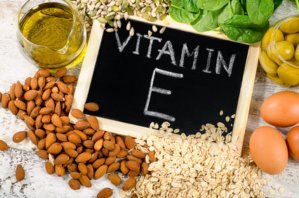
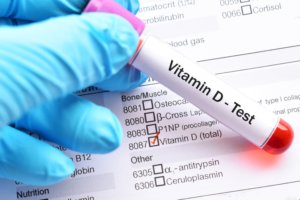 Type 2 diabetes is spreading like a bushfire, and most people will be affected by periodontal disease at some point in their life. Now, science has discovered that lack of
Type 2 diabetes is spreading like a bushfire, and most people will be affected by periodontal disease at some point in their life. Now, science has discovered that lack of  People, who eat nutrient-depleted diets, have an increased risk of contracting cancer, according to a French study that is published in PLoS Medicine. The scientists therefore recommend labeling food to help consumers make healthier choices. In the Nordic countries, we already have the “Keyhole label” on certain healthy food items, but even if you follow the official dietary guidelines, it may be difficult to get enough vitamin D and selenium, both of which are nutrients with several anti-cancer mechanisms.
People, who eat nutrient-depleted diets, have an increased risk of contracting cancer, according to a French study that is published in PLoS Medicine. The scientists therefore recommend labeling food to help consumers make healthier choices. In the Nordic countries, we already have the “Keyhole label” on certain healthy food items, but even if you follow the official dietary guidelines, it may be difficult to get enough vitamin D and selenium, both of which are nutrients with several anti-cancer mechanisms. A pregnant woman can support the development of her baby’s brain and vision by consuming oily fish regularly, according to a new Finnish study. Meanwhile, a new Danish study shows that fish oil supplements given to pregnant women give their offspring a better start at life because of their content of
A pregnant woman can support the development of her baby’s brain and vision by consuming oily fish regularly, according to a new Finnish study. Meanwhile, a new Danish study shows that fish oil supplements given to pregnant women give their offspring a better start at life because of their content of  Although chronic inflammation is not something that you feel as such, it sets the stage for a number of symptoms and a host of different diseases including fatigue, overweight, diabetes, cardiovascular disease, rheumatism, metabolic disorders, asthma, periodontal disease, bowel infections, depression, Alzheimer’s disease, sclerosis, and cancer. Not surprisingly, people are more and more hooked on the anti-inflammatory lifestyle, and we will take a closer look at studies showing how fish oil, vitamin D, selenium, magnesium, and zinc contribute to preventing and fighting inflammation, related diseases and premature death. Any nutritional supplements must be of a proper quality that the body can absorb, and they should contain therapeutic dosages.
Although chronic inflammation is not something that you feel as such, it sets the stage for a number of symptoms and a host of different diseases including fatigue, overweight, diabetes, cardiovascular disease, rheumatism, metabolic disorders, asthma, periodontal disease, bowel infections, depression, Alzheimer’s disease, sclerosis, and cancer. Not surprisingly, people are more and more hooked on the anti-inflammatory lifestyle, and we will take a closer look at studies showing how fish oil, vitamin D, selenium, magnesium, and zinc contribute to preventing and fighting inflammation, related diseases and premature death. Any nutritional supplements must be of a proper quality that the body can absorb, and they should contain therapeutic dosages.
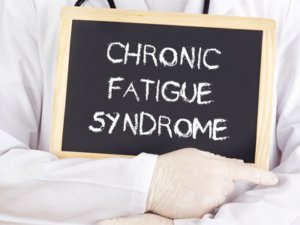 Perhaps so. More and more studies reveal that it helps to take large quantities of
Perhaps so. More and more studies reveal that it helps to take large quantities of 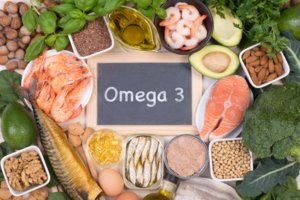 Cardiovascular diseases account for more deaths than anything else. Still, there is a lot of discussion about the diet and its impact on cardiovascular health, typically when it comes to the question of avoiding fat and choosing margarine instead of butter. A team of Czech scientists decided to study diet habits among different populations and compare these with the risk of cardiovascular disease and premature death. Their study shows that there is no need to be afraid of cholesterol. In fact, the official dietary guidelines could easily do with an adjustment. At the same time, it is important to reduce our intake of carbohydrates and omega-6 fatty acids that are the real culprits. Finally, it is essential to increase the intake of omega-3.
Cardiovascular diseases account for more deaths than anything else. Still, there is a lot of discussion about the diet and its impact on cardiovascular health, typically when it comes to the question of avoiding fat and choosing margarine instead of butter. A team of Czech scientists decided to study diet habits among different populations and compare these with the risk of cardiovascular disease and premature death. Their study shows that there is no need to be afraid of cholesterol. In fact, the official dietary guidelines could easily do with an adjustment. At the same time, it is important to reduce our intake of carbohydrates and omega-6 fatty acids that are the real culprits. Finally, it is essential to increase the intake of omega-3. Oily fish is a great source of the essential omega-3 fatty acids, EPA and DHA, which are important for the development of the brain and nervous system of the unborn child. Pregnant women with low levels of these two omega-3 fatty acids have a statistically significant increased risk of preterm delivery compared with pregnant women who have high levels of EPA and DHA in their blood. This was shown in a study from SSI in Copenhagen, carried out in collaboration with Harvard T.H. Chan School of Public Health in Boston, the United States. The problem is that many women are afraid to eat oily fish during their pregnancy because of the risk of mercury poisoning. So which fish are the safest for consumption – and what about fish oil supplements?
Oily fish is a great source of the essential omega-3 fatty acids, EPA and DHA, which are important for the development of the brain and nervous system of the unborn child. Pregnant women with low levels of these two omega-3 fatty acids have a statistically significant increased risk of preterm delivery compared with pregnant women who have high levels of EPA and DHA in their blood. This was shown in a study from SSI in Copenhagen, carried out in collaboration with Harvard T.H. Chan School of Public Health in Boston, the United States. The problem is that many women are afraid to eat oily fish during their pregnancy because of the risk of mercury poisoning. So which fish are the safest for consumption – and what about fish oil supplements?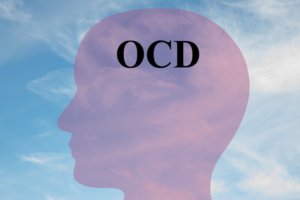 Sunlight is important for our mental health for various reasons. At northern latitudes, we are exposed to less sunlight. According to a new American study, that increases your risk of the OCD, a psychiatric disorder characterized by compulsive thoughts and behavior. The scientists point to the fact that people with OCD often have delayed 24-hour rhythm and get to bed late at night, and they theorize that these disturbances of the circadian rhythm and lack of melatonin may play a role. This presents new potential in the treatment of the disease, and morning light is part of it. Melatonin supplements may also be worth trying.
Sunlight is important for our mental health for various reasons. At northern latitudes, we are exposed to less sunlight. According to a new American study, that increases your risk of the OCD, a psychiatric disorder characterized by compulsive thoughts and behavior. The scientists point to the fact that people with OCD often have delayed 24-hour rhythm and get to bed late at night, and they theorize that these disturbances of the circadian rhythm and lack of melatonin may play a role. This presents new potential in the treatment of the disease, and morning light is part of it. Melatonin supplements may also be worth trying. According to a large meta-analysis, supplementing with
According to a large meta-analysis, supplementing with  Most people thrive on the idea of staying physically active throughout life, but as we grow older, our skeletal muscle slowly vanishes and our figure changes. This is known as sarcopenia and is one of the main reasons why older people become more fragile and perhaps even disabled. Exercise and diet play a major role, and it seems that the official dietary guidelines are not optimal and should focus more on increased intake of protein as well as lysine, vitamin D, and omega-3 according to a new Canadian study. Earlier research shows that magnesium, selenium, and Q10 are also important for muscle mass and strength.
Most people thrive on the idea of staying physically active throughout life, but as we grow older, our skeletal muscle slowly vanishes and our figure changes. This is known as sarcopenia and is one of the main reasons why older people become more fragile and perhaps even disabled. Exercise and diet play a major role, and it seems that the official dietary guidelines are not optimal and should focus more on increased intake of protein as well as lysine, vitamin D, and omega-3 according to a new Canadian study. Earlier research shows that magnesium, selenium, and Q10 are also important for muscle mass and strength.